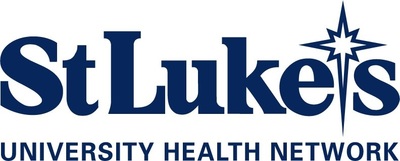St. Luke’s is pleased to introduce its new COVID Recovery Clinic, a program dedicated to the treatment of post-COVID-19 patients with lingering symptoms.
|
BETHLEHEM, Pa., April 16, 2021 /PRNewswire/ -- St. Lukes Hospital is pleased to introduce its new COVID Recovery Clinic, a program dedicated to the treatment of post-COVID-19 patients with lingering symptoms. St. Luke's recognizes the prevalence of "long COVID" symptoms and the need to care for patients afflicted by these symptoms appropriately. Incorporating the expertise of a half dozen different kinds of medical specialists, the program promises a coordinated, multidisciplinary approach to Post-Acute Sequelae of COVID, known as PASC. Participants will benefit from specialized evaluation and a personalized treatment plan. "Many people recovering from COVID continue to have long-lasting symptoms that impact their day-to-day lives. St. Luke's is committed to helping these patients get access to the most appropriate care so they can find relief," said St. Luke's Senior Regional Medical Director Dennis McGorry, MD, who is spearheading the program. Nationally, PASC of varying severity is being reported in up to 30% of adults and children following COVID infection. Most typical COVID cases resolve in four weeks, explained Jeffrey Jahre, MD, St. Luke's Vice President of Medical & Academic Affairs and Section Chief Emeritus of Infectious Diseases. But for some, the symptoms aren't going away. "Patients are going to their doctor, asking, 'What's wrong with me?' In many cases, people are not getting the appropriate care." The most common after-effects these patients, or "long haulers," experience include extreme fatigue, memory impairment, known as "brain fog," anxiety and depression, breathing difficulty and heart muscle irregularities or irregular heartbeats. Patients with persistent symptoms beyond four weeks are advised to go to their St. Luke's primary care physician, who will be able to evaluate them and may refer them to the COVID Recovery Clinic for further treatment by appropriate medical specialists. Depending on a patient's specific symptoms and their severity, treatment can include cognitive and memory retraining, physical and occupational therapy, medication and group therapy for behavioral health issues as well as other interventions to address neurologic, pulmonary and cardiac problems. St. Luke's has taken steps to help providers manage PASC, such as building a "smart set" algorithm into the electronic medical record system. The smart set guides physicians on ordering tests and imaging scans based on patients' symptoms. While some COVID after-effects may be mild, McGorry said, "The key is not missing something serious like a pulmonary embolism or cardiomyopathy (heart muscle issue) in these patients." If you or a loved one believes you have "long COVID" or PASC, make an appointment with your St. Luke's provider. If you do not have a St. Luke's provider, call 1-866-STLUKES (785-8537), option 7. About St. Luke's Founded in 1872, St. Luke's University Health Network is a fully integrated, regional, non-profit network of more than 16,000 employees providing services at 12 hospitals and 300 outpatient sites. With annual net revenue in excess of $2.5 billion, the Network's service area includes 11 counties in Pennsylvania and New Jersey. Dedicated to advancing medical education, St. Luke's is the preeminent teaching hospital in central-eastern Pennsylvania.
SOURCE St. Luke's University Health Network |





